Have you ever noticed those odd-looking patches on damp walls? That's mold, a type of fungi that, while intriguing under a microscope, isn't something you'd want in your home. The mere sight can make anyone cringe, especially knowing its potential health risks.
Here's a fact: Mold has been on Earth way longer than we have - over 200 million years, to be exact! They come in all shapes, sizes, and colors. From black to pink and everything in between, molds might appear as fluffy patches, sleek films, or even powdery specks.
And with insulating homes to keep them cozy, it seems like mold can find a comfy spot to settle in and grow, especially if there is reduced ventilation, too. Not the best houseguest, right?
Black mold, scientifically known as Stachybotrys chartarum, can pose numerous health risks:
Sneaky Allergic Reactions: Not usually an allergy sufferer? Black mold might change that. It can bring on the full ensemble - sneezing, itching, skin irritation, and the classic runny nose.
Asthma's Worst Enemy: For those with asthma, black mold is like that one relative who always stirs up drama. It can cause wheezing, make breathing tough, and leave you with a feeling of tightness in the chest.
Respiratory Challenges - Not Just for the Sensitive: Black mold doesn't discriminate. While kids, seniors, and folks with weakened immune systems are at a higher risk, it can leave anyone coughing, wheezing, and gasping for air.
More Than Just Sniffles: There's more to black mold than just respiratory woes. It's also linked to headaches, sore throats, feeling wiped out, and even fevers.

Dealing with mold isn't just a short-term gig; sometimes, it's more like a marathon. Even if you don't feel the effects right away, especially with those sneaky toxic types, the aftermath can creep up over time.
Say you've bid farewell to mold (hooray!) or moved to a mold-free zone. Don't be surprised if you still feel like mold's shadow is lingering. Extended exposure can play tricks on your mind, making concentrating, decision-making, or even recalling what you had for lunch a bit of a puzzle.
Mold isn't just about sneezes and coughs; it can take a toll on your emotions too. You might find yourself feeling a bit out of sorts, edgy, or even down in the dumps. And if your body's been on high alert fighting off mold, fatigue can become your new unwanted buddy, especially for those with allergies or asthma.
Don't forget, mold loves to pick on your lungs. So, even when you think you've left mold in the dust, those breathing troubles might stick around like a bad habit.
While many worry about black mold, other mold types can be sneaky health culprits too. Take Aspergillus, often lurking indoors, which might give some folks lung issues or allergies. Then there's Cladosporium, hiding in damp spots or air systems, causing breathing troubles and itchy skin. Penicillium, sprouting on wet surfaces, might flare up allergies or infections. Alternaria can be a trigger for asthma, and Fusarium, found in soggy buildings, might irritate the skin or cause allergic reactions. So, it's a good habit to keep spaces dry and airy. And if you spot any mold, call our mold remediation service in Plainfield, NJ, no matter its color or name.
Ensuring your home in Plainfield, NJ, is safe from toxic black mold exposure requires keeping your spaces neat and devoid of mess. Managing moisture is equally essential; always ensure spaces are dry and unaffected by water damage. Regular checks for mold signs or conducive growth spots are key. If black mold does appear, securing professional help for its mold remediation, mold removal, and mold abatement is a must.
Here are some additional tips for protecting your health after black mold exposure from our Plainfield specialists:
For mold issues in Plainfield, NJ, and nearby regions, call FDP Mold Remediation of Plainfield at 877-421-2614. They are professional mold remediation and mold removal experts, offering free consultations and guiding you towards a mold-free environment. Discover the best mold restoration company to ensure your home is mold-free.



